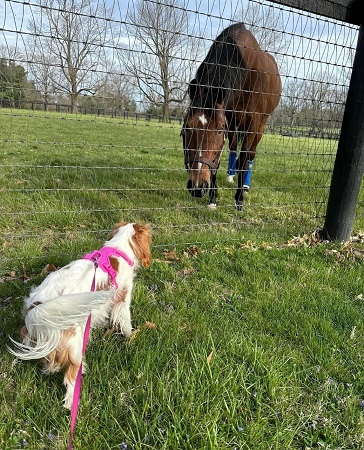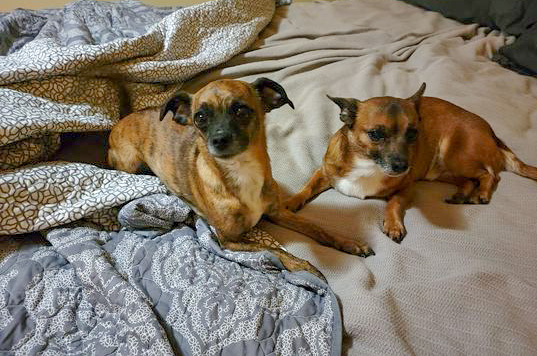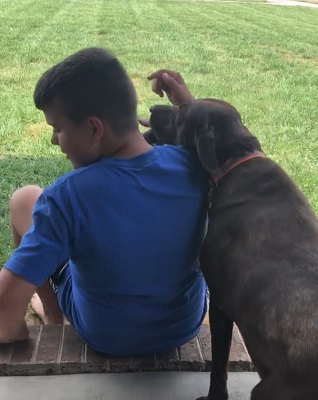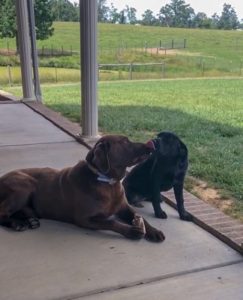Short Leash
 A friend recently said, “when we are dog-tired, we can be on that short leash of frustration and bark at others too easily.” How true. Fatigue often leads to frustration and harsh answers.
A friend recently said, “when we are dog-tired, we can be on that short leash of frustration and bark at others too easily.” How true. Fatigue often leads to frustration and harsh answers.
A short leash means strong control by someone or something.
When dog owners want more control over their dogs, they keep the leash short and the dogs close.
People on short emotional leashes know the feeling well. They enjoy little freedom.
We suffer if we allow emotions to keep us on a short leash.
God gave us emotions, but God also gave us minds. We never want our emotions to cloud good judgement.
Let’s choose a better way.
Rather than bark or yell at someone when upset, why not take time to calm down? We don’t want to say anything we regret. If we give it a rest long enough to get a grip, we don’t have to worry about going haywire.
“Where there is no revelation, people cast off restraint; but blessed is the one who heeds wisdom’s instruction” (Proverbs 29:18 NIV).
Thanks to Martha J. Orlando for the suggestion and to Chelsey Stone for the photo.
Do you have an expression you want explained or a thought about this one? If so, please comment below.
Subscribe to receive my weekly posts by email and receive a free copy of “Words of Hope for Days that Hurt.”
If you enjoyed this post, please share it with your friends.

 Like several animals (and a few people) dogs can be dangerous when suddenly wakened. Therefore, we usually let sleeping dogs lie. We leave them alone to sleep in peace.
Like several animals (and a few people) dogs can be dangerous when suddenly wakened. Therefore, we usually let sleeping dogs lie. We leave them alone to sleep in peace. Like Kaleb’s puppy, too many times, I have cleaned with a lick and a promise. What about you?
Like Kaleb’s puppy, too many times, I have cleaned with a lick and a promise. What about you? Sometimes we have to give a lick and a promise.
Sometimes we have to give a lick and a promise. Dogs (especially puppies) often get in trouble. They:
Dogs (especially puppies) often get in trouble. They: